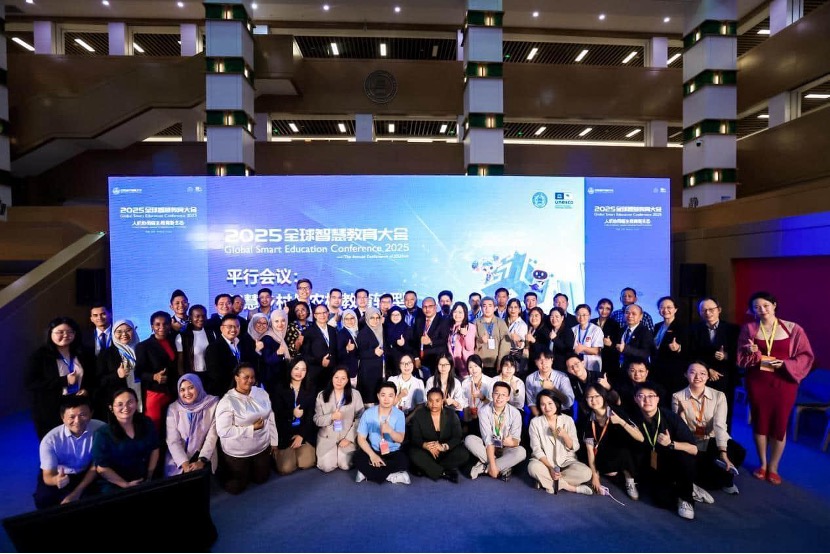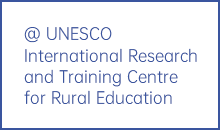On August 19, the Parallel Session on Smart Villages and Education for Rural Transformation was successfully convened at Beijing Normal University as part of the 2025 Global Smart Education Conference. The Session was co-organized by the UNESCO International Research and Training Centre for Rural Education (INRULED) and the SEAMEO Regional Centre for Technical Education Development (SEAMEO TED), with support from the SEAMEO Regional Centre for Sufficiency Economy Philosophy for Sustainability (SEAMEO SEPS) and the SEAMEO Regional Centre for STEM Education (SEAMEO STEM-ED).
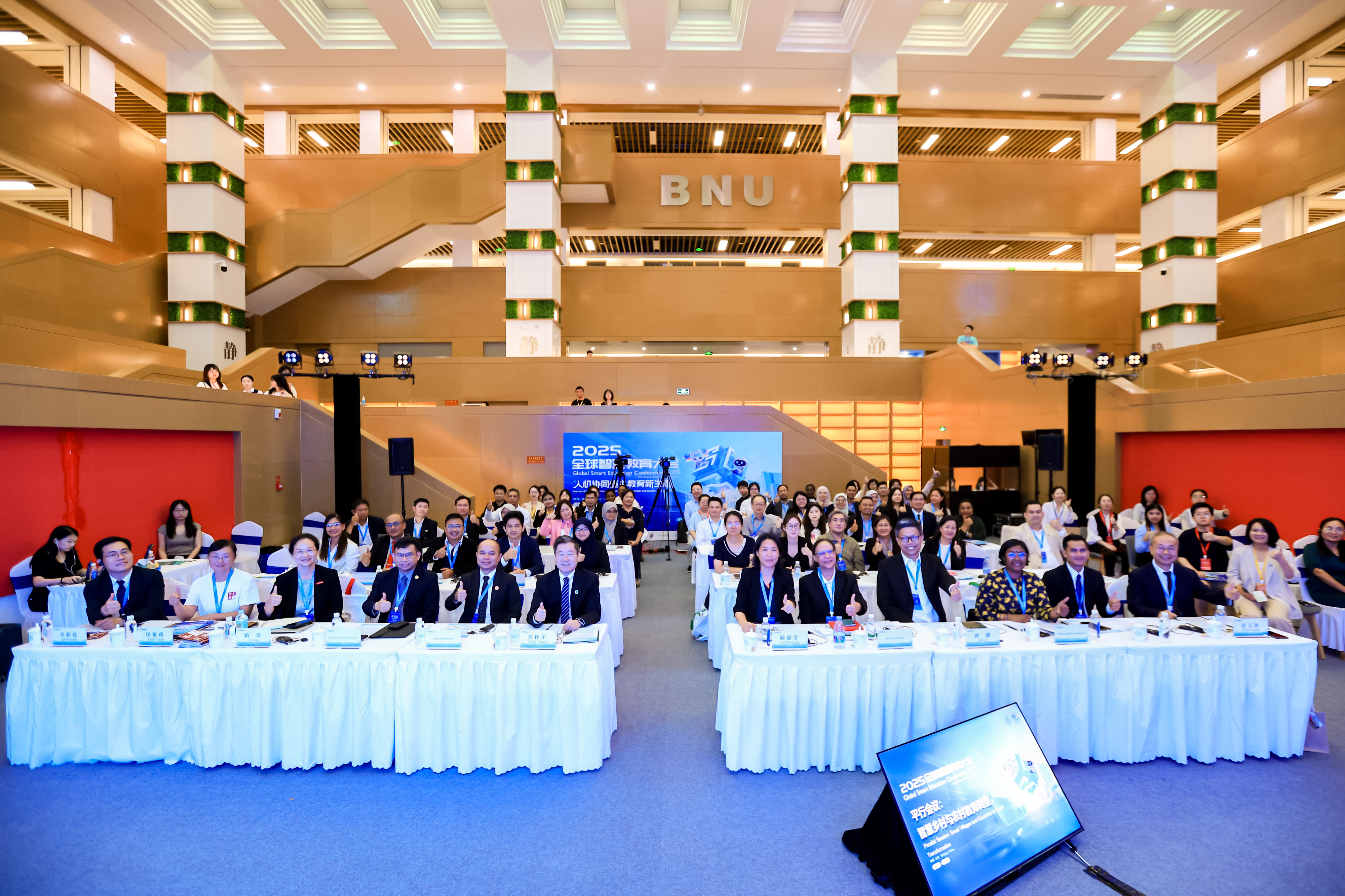
The event brought together nearly 100 participants, including policymakers, researchers, representatives of international organizations, principals of TVET institutions, industry experts, and frontline teachers from China, 11 Southeast Asian countries, as well as from Africa and beyond.
The Session featured opening remarks, keynote speeches, case presentations, and a roundtable discussion. Centering the envisioning of smart villages and educational empowerment pathways, the Session touched upon topics including the landscape of smart villages and rural education transformation, opportunities and challenges of digital technology in empowering rural education, international experiences on digital transformation of TVET to promote sustainable rural development, and opportunities and challenges for advancing STEM education in rural areas.
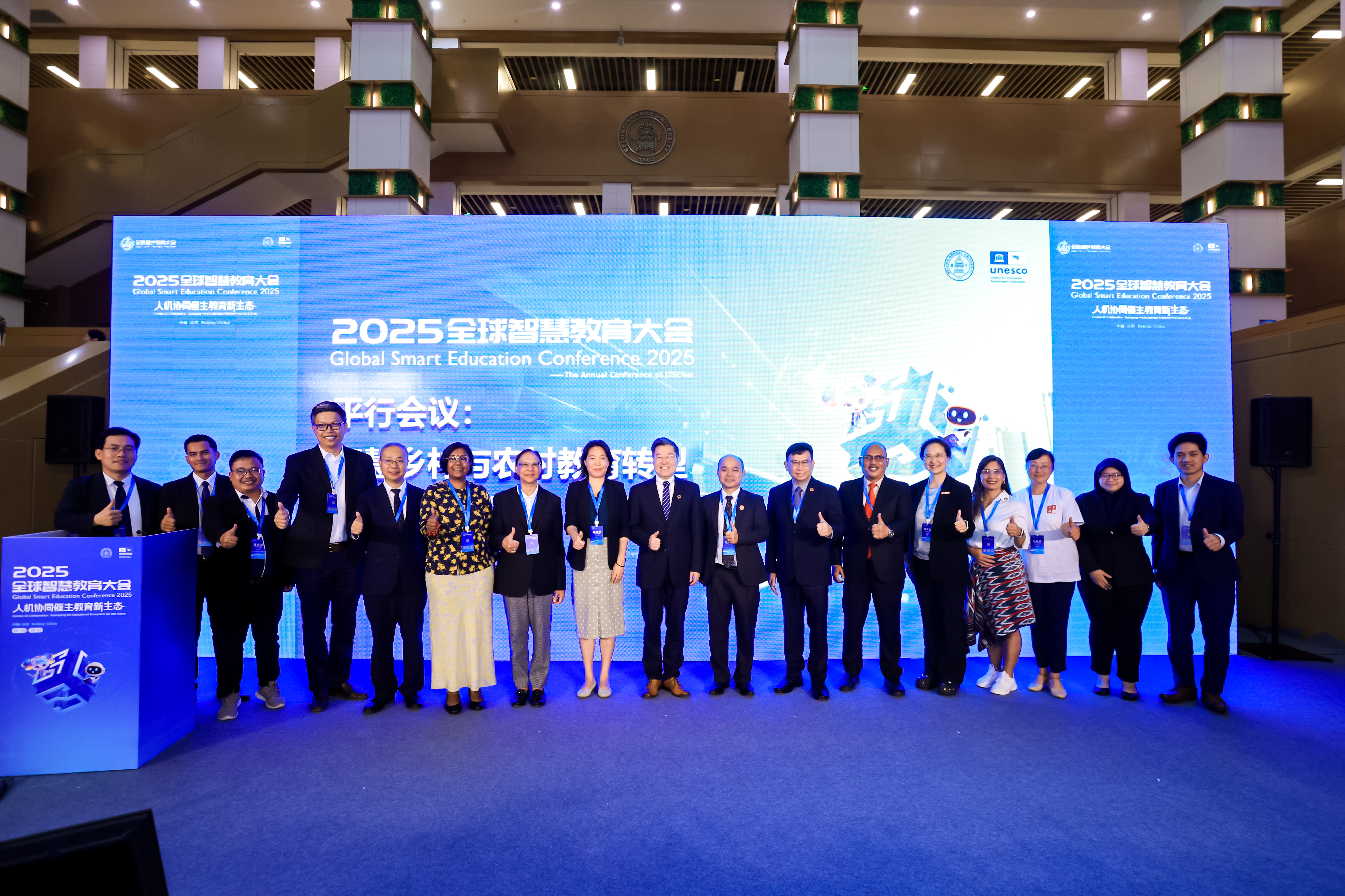
Opening Remarks
Prof. ZHOU Zuoyu, Vice Chairman of the University Council, Beijing Normal University and Director of UNESCO INRULED, underlined that in leveraging digital technologies for rural education and development, unprecedented opportunities and complex challenges co-existed. He encouraged participants to engage in in-depth discussions and explore innovative solutions to harness digital technologies to empower education, bridge the urban-rural divide, and lead the transformation of rural education to provide strong talent support for rural development. He further emphasized the importance of establishing cross-regional and cross-sectoral collaborative mechanisms to incorporate rural education into regional and international development agendas.
Ms. LIN Huifang, Deputy Director-General of Foreign Economic Cooperation Center (China-EU Center for Agricultural Technology), Ministry of Agriculture and Rural Affairs, P. R. China, noted in her speech that China and Southeast Asian countries have maintained close and friendly cooperation in agriculture and rural development. She highlighted that FECC has made steadfast progress in China-ASEAN agricultural and rural cooperation through initiatives such as conducting international cooperation research on smart agriculture, building platforms for exchange and mutual learning, implementing Smart Farm Integrated Development Pilot Program (SFIDPP), and strengthening capacity building.
Keynote Presentation
During the keynote session, Dr. Duriya Amatavivat, Director of the SEAMEO SEPS, elaborated on the Sufficiency Economy Philosophy (SEP) and its three core principles of moderation, reasonableness, and prudence and its fundamental value in driving economic, environmental, and social transformation in rural areas. She further introduced the Centre's work in capacity building, research and knowledge production, community mobilization, and partnership development.
Prof. LIU Ji from Shaanxi Normal University introduced to the audience the critical importance of addressing the learning needs of the rural population and the Global South to advance the realization of the Sustainable Development Agenda. Drawing on a global scoping of learning data, he pointed out the acute challenges faced by the "stock" and the "flow" populations in rural areas in accessing quality learning opportunities in the digital era. To address these gaps, he proposed the idea of "digital solutions to digital problems" as a way to enhance the access, quality and effectiveness of rural learning.
The opening session and keynote speeches were moderated by Dr. ZHAO Yuchi, Executive Director of UNESCO INRULED.
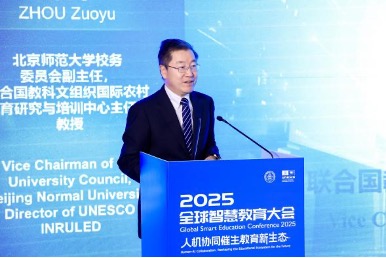
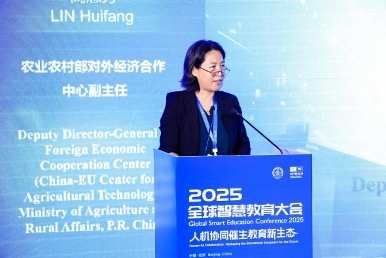
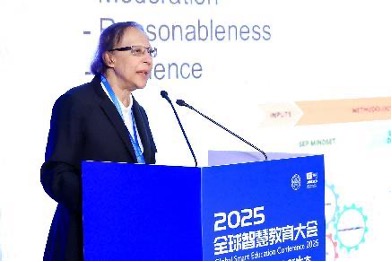
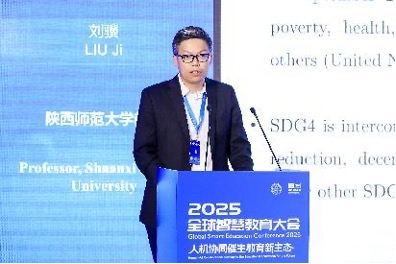
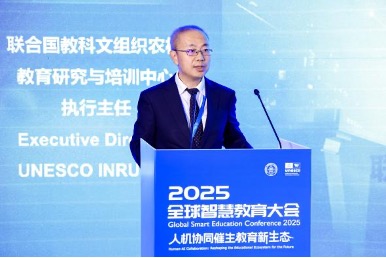
Case Report
During the case report session, Dr. Morn Kritsachai Somsaman, Director of SEAMEO STEM-ED firstly shared some learning challenges faced by rural schools in Chiang Mai, Nong Khai and poor urban schools in Bangkok which included low learning motivation, over-reliance on local economic development, and ineffective utilization of learning resources. He then presented innovative outdoor STEM practices for rural kids designed to enhance student engagement, leveraging local materials, integrating design thinking, and encouraging parental and community involvement.
Dr. LU Yao, Vice Dean of International College & Deputy Director of ASEAN-China Education & Training Center of Yunnan Agricultural University highlighted Yunnan Province’s key role in advancing agricultural cooperation with Southeast Asian countries. She shared innovative practices in green and smart agriculture under the Smart Village framework and introduced capacity-building initiatives led by the China-ASEAN Education and Training Center.
Dr. Nithiananthini Kumarawel, Deputy Director of the Educational Resources and Technology Division of Ministry of Education of Malaysia, presented Malaysia’s national policies and innovative approaches in advancing educational digital transformation and cultivating digitally fluent students, with a particular focus on the opportunities and challenges of AI-enabled classrooms.
Ms. TIAN Yanli, Principal of Tianzige Xinglong Experimental Primary School in Guizhou Province, China, shared Tianzige’s journey from providing voluntary support to rural schools to experimenting future school models in China’s Guizhou Province, led by the founder Ms. XIAO Shijian. She elaborated on the principles of the locally-grounded humanistic education philosophy and the five curricula of Tianzige. She also shared reflections on “bringing the humanistic touch to technology”.
The case report session was moderated by Mr. Khat Prumsochetra, Deputy Director of SEAMEO TED.
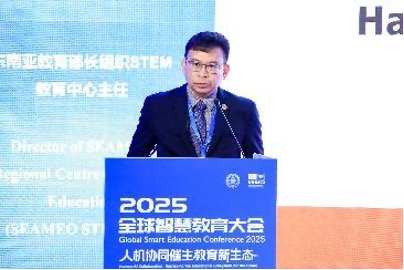
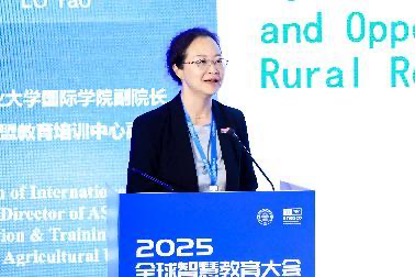
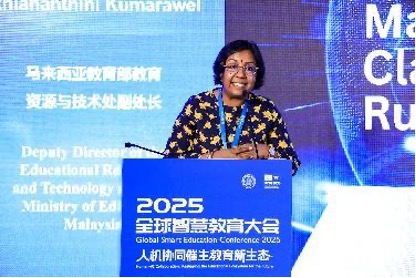
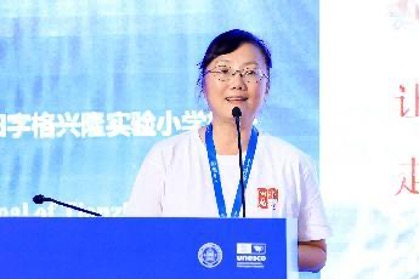
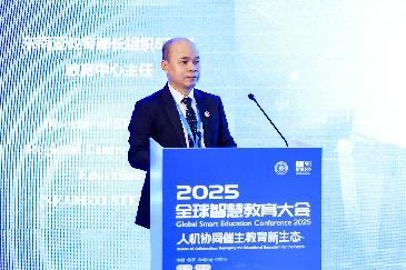
Roundtable Discussion: TVET for Smart Villages and Rural Transformation
At the Roundtable Discussion session, five delegates from the China-Southeast Asia Capacity Development Workshop were invited to share international experiences on how digital transformation in TVET can advance sustainable rural development. The panelists included Ms. Norfarrah binti Muhamad Masdi, Education Officer, Politeknik Brunei, Brunei Darussalam, Dr. Chin Sam Ath, Deputy Director of Department of Policy, Ministry of Education Youth and Sport, Cambodia, Dr. Eka Nurhidayat, S.Pd., M.Pd, Head of Cooperation Division Universitas Majalengka, Indonesia, Mr. Ts. Khairil Azhar Bin Mohd Nor, Director of Gerik Community College, Malaysia and Dr. (Prof). Karen B. Cue, Director for Local and International Affairs, the Philippines. Drawing from diverse perspectives of policy-making, academic collaboration, community engagement, and partnerships, they elaborated on how effective mechanisms and innovative pathways can be designed to leverage TVET for sustainable rural development. The roundtable discussion was moderated by Dr. QI Xinjian, Assistant Director of UNESCO INRULED.
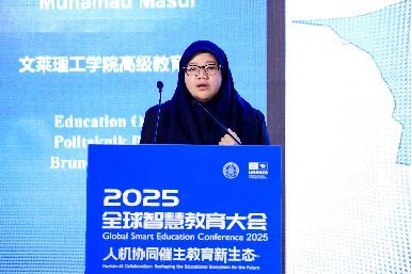
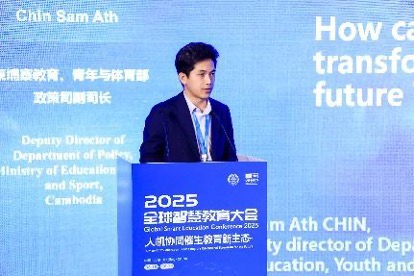
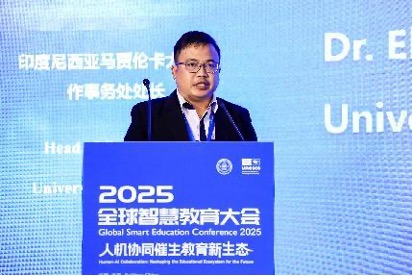
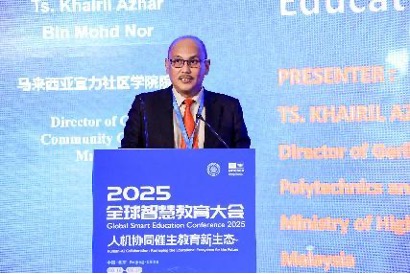
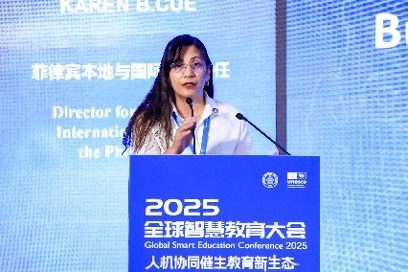
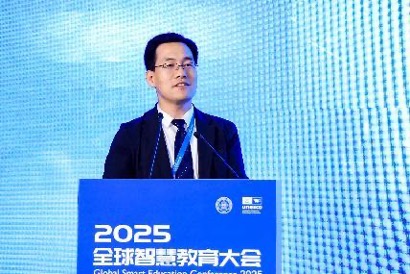
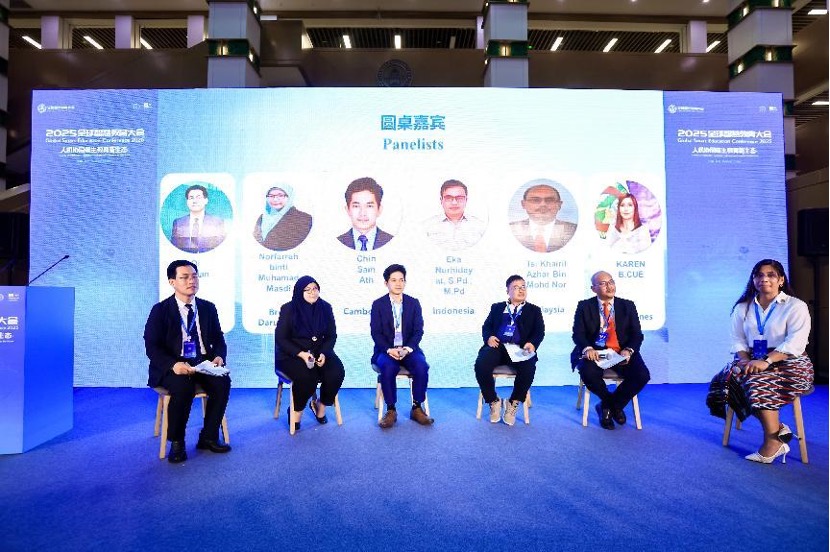
As an integral part of the Global Smart Education Conference, the parallel session on Smart Villages and Education for Rural Transformation not only deepened cutting-edge discussions on the development of rural education in the context of digital transformation and smart education, but also inspired participants to explore practical approaches to achieving educational equity and inclusion. It further promoted the enhancement of innovation and adaptive capacity within education systems, providing new ideas and avenues for addressing the complex challenges of the digital era and advancing the transformation and sustainable development of rural education.
